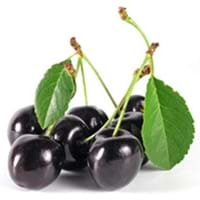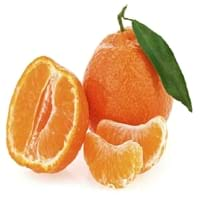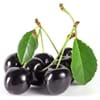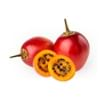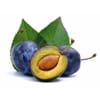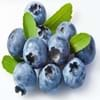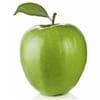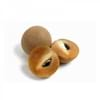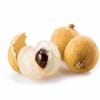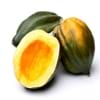Health Benefits
Anti-aging benefits, Anti-inflammatory properties, Arthritis treatment, Cancer prevention, Helps body to rest and sleep, Lower blood pressure, Prevents diabetes, Prevents strokes, Reduces risk of heart disease
Cancer prevention, Heart care, Increases metabolic rate, Reduces stress
General Benefits
Fights against infections, Fights Tooth Decay, Helps in weight loss, Relieves pain, Treatment of migraine
Boosts immune system, Controls blood pressure, Digestive aid, Eye care, Helps in weight loss
Skin Benefits
Anti-aging benefits, Fairness, Hydrates skin, Prevents skin cancer, Skin repair, Treatment of acne
Brightens and lightens complexion, Treatment of acne, Treatment of dark spots
Hair Benefits
Cure for hair loss, Increasing hair volume, Prevents hair loss, Strengthening of hair
Promotes longer and healthier hair, Protects hair
Allergy Symptoms
Abdominal cramps, Anaphylaxis, Diarrhea, Hoarseness, Itchy eyes, Nausea, Pollen allergies, Sore eyes, Vomiting, Watery eyes, Wheezing
Abdominal pains, Breathing difficulty, Coughing, Diarrhea, Drop in blood pressure, Fainting, Runny nose, Skin rash, Sneezing, Swelling of mouth, tongue or lips, Vomiting
Side Effects
High doses of black cherry bark can be poisonous and even fatal.
Allergic reaction
Lactating Women
Not Available
No
Best Time to Eat
Best if taken as a breakfast (or empty stomach), Don't eat after meal, Morning time (before lunch)
As a snack in the late afternoon, Don't consume at night and before bed, Eat the fresh ones, avoid mixing with any other foods, don't eat after meal., Morning time (before lunch)
Vitamin A (Retinol)
Not Available
Vitamin B1 (Thiamin)
Not Available
Vitamin B5 (Pantothenic Acid)
Vitamin B6 (Pyridoxin)
Not Available
Vitamin B9 (Folic acid)
Not Available
Vitamin C (Ascorbic Acid)
Not Available
Vitamin E (Tocopherole)
Not Available
Vitamin K (Phyllochinone)
Not Available
Phytosterol
Not Available
Calories in Fresh Fruit with Peel
Not Available
Calories in Fresh Fruit without Peel
Not Available
Calories in Frozen Form
Not Available
Not Available
Calories in Dried Form
Not Available
Not Available
Calories in Canned Form
Not Available
Not Available
Calories in Juice
Not Available
Calories in Jam
Not Available
Calories in Pie
Not Available
Varieties
alabamensis, capuli , eximia and hirsuta
Clemenules or Nules and Nadorcott
Inside Color
Maroon
Orange
Taste
Sweet-Sour
Sweet, Tangy, Tart
Origin
North America
China
Soil Type
Not Available
Loam, Sandy, Well-drained
Climatic Conditions
Cold
Warm to hot climate
Facts about
- Black cherry is deciduous tree that belongs to the family of roses.
- Some foods made from Black Cherry fruit include jelly and wine.
- Inner bark of black cherry is used in the manufacture of cough syrup.
- Clementine was first grown at the citrus research center in USA in 1909.
- It is called as"Christmas orange" as it's limited growing season falls during winter.
- It's a hybrid between Mediterranean and Oranges.
Top Producer
Turkey
Spain
Other Countries
Austria, Bulgaria, Chile, China, France, Greece, Iran, Italy, Macedonia, Poland, Romania, Russia, Serbia, Spain, Syria, Ukraine, United States of America, Uzbekistan
Argentina, Brazil, Egypt, Italy, Japan, Morocco, Turkey, United States of America
Top Importer
France
United States of America
Top Exporter
Turkey
Spain
Botanical Name
Prunus Serotina
Citrus clementina
Synonym
wild black cherry, rum cherry and mountain black cherry
Not Available
Subkingdom
Tracheobionta
Tracheobionta
Division
Magnoliophyta
Magnoliophyta
Class
Magnoliopsida
Magnoliopsida
Species
P. serotina
C. clementina
Generic Group
Cherry
Citrus fruit
Difference Between Black cherry and Clementine
We might think that Black cherry and Clementine are similar with respect to nutritional value and health benefits. But the nutrient content of both fruits is different. Black cherry and Clementine Facts such as their taste, shape, color, and size are also distinct. The difference between Black cherry and Clementine is explained here.
The amount of calories in 100 gm of fresh Black cherry and Clementine with peel is 63.00 kcal and Not Available and the amount of calories without peel is Not Available and 47.00 kcal respectively. Thus, Black cherry and Clementine belong to Low Calorie Fruits and Low Calorie Fruits category.These fruits might or might not differ with respect to their scientific classification. The order of Black cherry and Clementine is Rosales and Sapindales respectively. Black cherry belongs to Rosaceae family and Clementine belongs to Rutaceae family. Black cherry belongs to Prunus genus of P. serotina species and Clementine belongs to Citrus genus of C. clementina species. Beings plants, both fruits belong to Plantae Kingdom.
